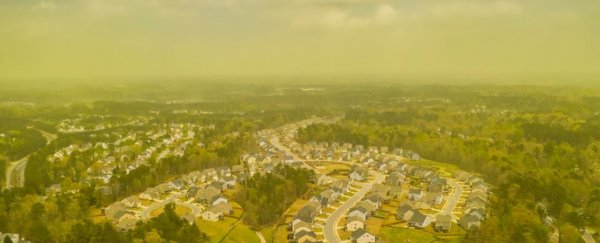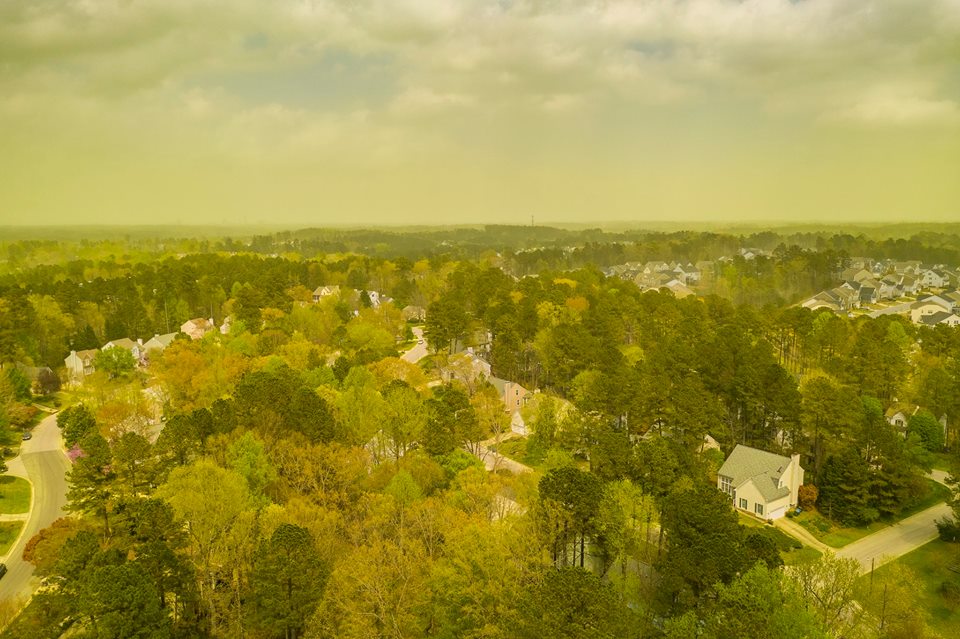Although the image above might make you think it's had an Instagram filter added, what you're looking at is pollen – lots and lots of pollen.
The images were taken by photographer Jeremy Gilchrist on Monday in Durham, North Carolina and honestly, if you're feeling a little sneezy just looking at it, you're not alone.
Pollen can trigger allergies in people who suffer from hayfever and asthma, and if the weather conditions are just right, they can cause even more severe reactions than usual, even ending in death.
After seeing a greenish cloud in the sky, Gilchrist told CNN that he sent up his drone to get a closer look - eventually taking a photo inside of the cloud.
"It was surprising to see it up that high," he said.
Although a storm came through later that afternoon and washed away the cloud, and pollen covering the ground, North Carolinians are not out of the woods just yet – tree pollen is still being recorded at very high levels across the US, including nearby at Raleigh, North Carolina according to the Weather Channel.
If you are an allergy sufferer, you can use the Weather Channel's forecast to see the daily levels, so you can take precautions like keeping your doors and windows shut when the pollen count is particularly high.
Gilchrist thinks that the reason the 'cloud' of pollen was so intense was because of perfect weather conditions. Breezy and dry air causes pollen granules to congregate.
But unfortunately we won't be escaping these 'pollenpocalypses' any time soon – climate change and warmer climates are likely to extend the growing season, and make it worse for suffers.
"The evidence so far is preliminary, but it points to a confluence of factors that favour longer growing seasons for the noxious weeds and other plants that trigger seasonal allergies and asthma attacks," explains Charles W. Schmidt, a climate change writer, in a 2016 paper.
"When exposed to warmer temperatures and higher levels of CO2, plants grow more vigorously and produce more pollen than they otherwise would."
Make sure to check out more of Gilchrist's photos on his Facebook page here.

